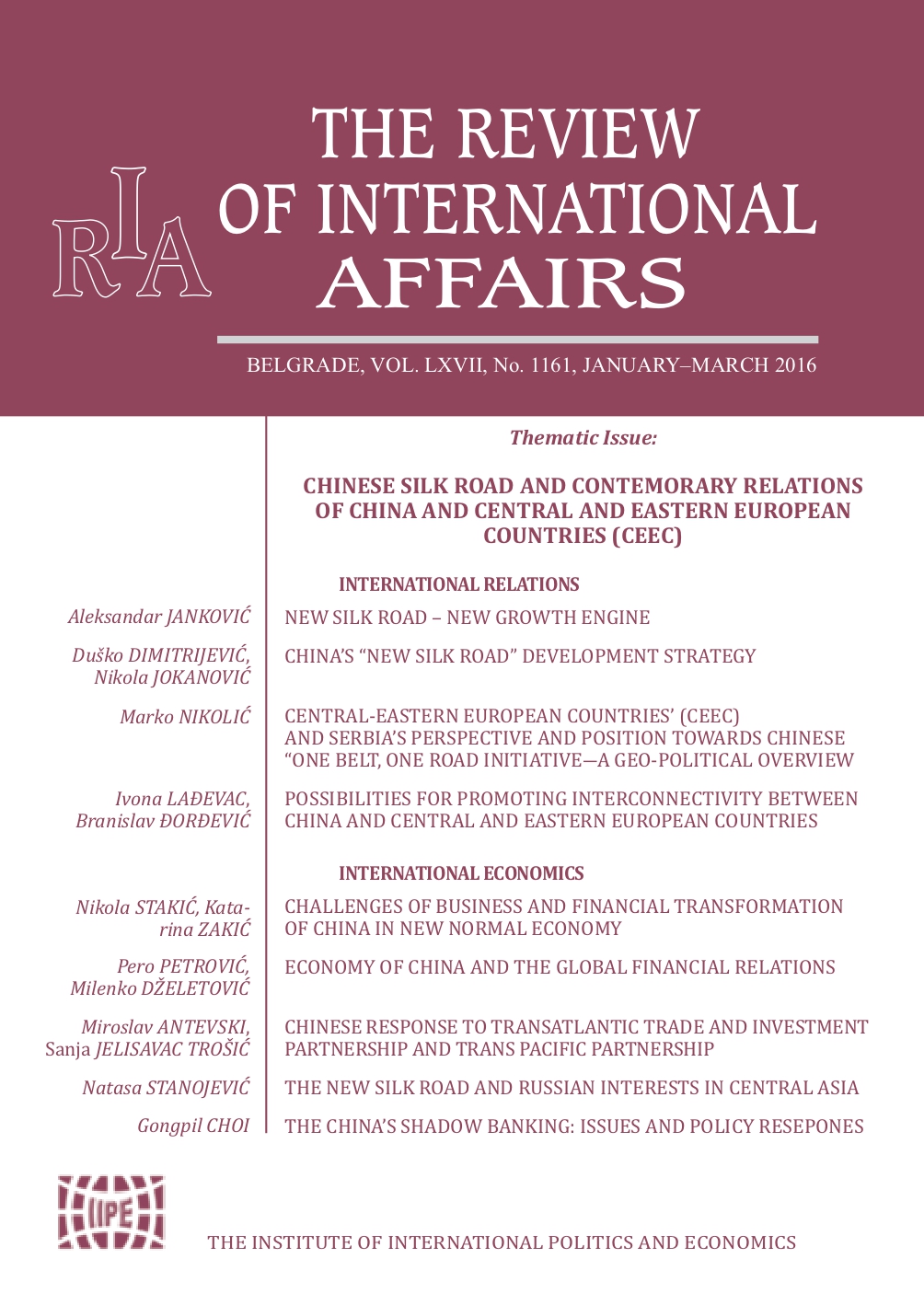Challenges of business and financial transformation of China in new normal economy
Challenges of business and financial transformation of China in new normal economy
Author(s): Nikola Stakić, Katarina ZakićSubject(s): Economy
Published by: Институт за међународну политику и привреду
Keywords: China; New Normal policy; business; finance; New Silk Road; Summit 16+1; Serbia
Summary/Abstract: The Peoples Republic of China has a new Government whose mandate started in 2013, and under which there are undergoing major changes in China both on internal and external level regarding its economy. After almost 30 years of growth that was around 10%, China’s GDP rate started to slowly fall down. During previous years, Chinese Governments were aware that some things in China’s economic model need to be changed, so it can continue to develop in a steady way. President Xi Jingping stated that there is a need for “New Normal” economy, that will help China’s adjusting to a new economic development model which will generate GDP growth rate of about 5-7%. In order to do so, the PRC must implement many changes on its domestic level, but also many changes on an international level within its international economic policies. This paper will present the economic factors that boosted China’s economy; why they need to change; what is a New Normal economy and how it will affect China’s economy, business and finances. At the same time, it will be shown how new Chinese initiatives on international level: “One Belt – One Road” and Summit “16+1”, are part of this New Normal policy on the international business market. The final part of this paper will be dedicated to Serbia’s place among Chinese international plans, in order to see what Serbia’s current projects with China are, what the future plans are and how Serbia can benefit from this new China’s plans.
Journal: The Review of International Affairs
- Issue Year: LXVII/2016
- Issue No: 1161
- Page Range: 80-100
- Page Count: 21
- Language: English

